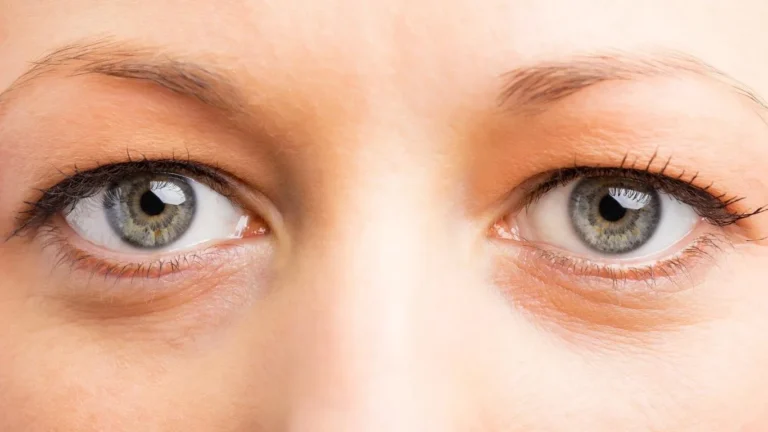Can Dairy-Free Diets Reduce GERD? A Simple Guide to What You Need to Know
If you’ve ever had to unbutton your jeans mid-meal or been woken up by that awful burning in your throat, then you know the rollercoaster that is living with GERD. I’ve been there. After years of antacids and disappointing food swaps, one thing I didn’t expect was the role dairy was playing in my reflux. It didn’t hit me until I cut back on my favorite creamy coffee and noticed I wasn’t reaching for the Tums as often. That got me curious—can going dairy-free actually help with GERD?
Understanding the Link Between Dairy and GERD

GERD (gastroesophageal reflux disease) is tricky. It’s not just one thing causing it—it’s a whole storm of triggers. But dairy? That one slips under the radar for a lot of folks. It seems innocent enough, but for some people, dairy is the stealthy culprit making their symptoms worse.
It’s not just about the fat in milk or cheese. Some researchers believe that casein, a protein in dairy, and lactose (a sugar) could both play a role in aggravating reflux in sensitive individuals. Even low-fat or lactose-free options haven’t always spared people from flare-ups.
If you’re thinking, “Wait, I thought milk was supposed to soothe heartburn?” — you’re not wrong. Some types of milk may offer short-term relief. But in the long run, it might not be doing your stomach any favors.
Why Some People with GERD Feel Better Without Dairy

This part is super personal—because reactions to dairy can vary wildly. But here’s what a lot of people (myself included) report after reducing or eliminating dairy:
- Less bloating and pressure—a common reflux trigger.
- Fewer nighttime flare-ups, especially after skipping ice cream or cheesy meals late in the day.
- Reduced post-meal burping and regurgitation.
Some experts, like those at NIDDK, suggest trial elimination diets as part of GERD management. Cutting dairy—even temporarily—can help you gauge if it’s a trigger for you personally.
How a Dairy-Free Diet Looks in Real Life

I won’t lie—it takes some adjusting. Giving up cheese was an emotional loss for me. But the relief I felt within a week? Totally worth it. Here’s what I found works:
Smart Dairy-Free Swaps
- Plant milks: Oat and almond milk sit well with most people. Just avoid the sugary, flavored kinds.
- Dairy-free yogurts: Coconut yogurt has been my best friend—thick, creamy, and easy on the tummy.
- Vegan cheeses: Some are better than others. Cashew-based ones tend to be less processed and gentler.
Hidden Dairy to Watch Out For
- Protein powders (many use whey or casein)
- Baked goods and dressings (surprise—you’ll find milk solids in there!)
- “Non-dairy” creamers (they often contain milk derivatives)
If you’re trying to eat GERD-friendly and dairy-free, check out this GERD diet plan we crafted to help you build meals that won’t set your esophagus on fire.
Pros and Cons of a Dairy-Free Diet for GERD

| Pros | Cons |
|---|---|
| May significantly reduce reflux symptoms | Can feel restrictive at first |
| Encourages trying new nutrient-rich foods | Some dairy alternatives are expensive or processed |
| Improved digestion and reduced bloating | May need to supplement calcium and vitamin D |
| Helps identify hidden triggers through elimination | Dining out becomes a bit more complicated |
Popular Questions: Is Dairy Really That Bad for Everyone?

Not necessarily. Some people with GERD handle dairy just fine—especially low-fat or fermented options like plain kefir or yogurt. But for others, even a splash of cream can send things south quickly. If you’re somewhere in between, try tracking your symptoms and testing different options.
Want the full lowdown on how dairy compares to alternatives? Dive into how almond milk stacks up when it comes to acid reflux.
One thing’s clear—if you’ve tried everything else and you’re still waking up with that lava-in-your-throat feeling, removing dairy for a few weeks might be a simple yet powerful shift to explore.
What to Expect When You Go Dairy-Free for GERD

When I made the switch, I braced myself for cravings. Cheese withdrawal is a real thing! But after the first week or so, not only did I stop missing it—I started noticing my meals felt lighter. Less bloating, smoother digestion, and for the first time in years, I didn’t feel like my dinner was threatening to climb back up my esophagus while I was trying to fall asleep.
Here’s what most people (and I) tend to notice when ditching dairy with GERD:
- Fewer throat-clearing episodes after meals
- Less reliance on acid reducers or antacids
- Improved energy and less “food coma” fatigue
If you’re used to loading up on cheese or cream-based dishes, it might feel like a leap—but most of the changes are manageable with the right alternatives.
Best Dairy-Free Alternatives That Won’t Trigger GERD

GERD-Safe Milk Substitutes
- Oat Milk: Smooth, mild, and usually GERD-friendly. Just skip the ones with added sugar or gums.
- Almond Milk: A personal favorite. Light, low in fat, and often soothing. Great for coffee or smoothies.
- Rice Milk: Thinner texture but works well for cereals or baking. Easy on digestion.
Dairy-Free Yogurt & Cheese
- Coconut Yogurt: Creamy and versatile. Some varieties can be acidic, so test with caution.
- Cashew Cheese: Among the most “real” tasting, without the tummy backlash.
- Tofu-Based Cheese: Neutral on flavor, but a decent meltability option for dishes like pizza or pasta.
And no, not all dairy-free alternatives are safe. Some plant-based milks are highly acidic or packed with additives that your stomach might hate. Always peek at the ingredient list. Less is more here.
Tips to Transition Off Dairy Without the Struggle

This isn’t about becoming a militant label-checker or giving up your favorite comfort foods forever. It’s about paying attention to how your body reacts and making swaps that work for you.
- Start slow. Maybe switch just your milk first. Then phase out cheese and yogurt.
- Prep easy meals ahead. Think rice bowls with roasted veggies, or smoothies with almond milk and bananas (yes, those are GERD-friendly!).
- Recheck your calcium sources. Try dark leafy greens, fortified milks, tahini, or chia seeds.
- Keep a journal. Not just what you eat, but how you feel a few hours later. Patterns reveal a lot.
And if you’re still stuck in the “but I love cheese” loop—same. So I started using nutritional yeast in cooking for that cheesy, umami vibe without the consequences. Total game-changer.
What the Research Says About Dairy and GERD

Although there’s no one-size-fits-all answer, more clinicians are starting to explore dietary elimination as part of GERD management. The Cleveland Clinic highlights the role of dietary triggers—including full-fat dairy—as a major factor for recurring GERD symptoms.
On top of that, many people who suffer from chronic GERD often report partial or full symptom improvement with dairy removal. While controlled studies are limited, the anecdotal and observational data is stacking up fast.
Common GERD Symptoms That May Improve
- Persistent throat irritation or hoarseness
- Post-meal fullness and belching
- Stomach pressure and regurgitation, especially when lying down
- Waking up coughing or with a sour taste in the mouth
Eliminating dairy won’t be the golden ticket for everyone—but if your GERD feels stuck on a loop, this switch might be worth trying for 2–3 weeks to assess your body’s response.
What Others Are Saying

Scroll through GERD forums or support groups and you’ll find story after story that sounds eerily familiar:
- “Once I cut out dairy, my nighttime reflux almost disappeared.”
- “Cheese was my comfort food… but it was also my biggest trigger.”
- “I switched to almond milk and ditched butter—now I barely need meds.”
There’s no magic diet that works for everyone with GERD, but testing your personal dairy tolerance is a move backed by both common sense and real-life success stories.
Popular Questions About Going Dairy-Free with GERD

Can I have butter if I cut out milk and cheese?
Maybe, but with caution. Butter is high in fat, and fat slows digestion—one of the core issues behind reflux. If you try it, go for small amounts or switch to olive oil or avocado oil for cooking.
Is yogurt okay if it’s lactose-free?
Not always. The acid profile of yogurt and the fermentation process may still irritate sensitive stomachs. If you want to try it, go for unsweetened, plant-based versions and start small.
How long before I notice improvement?
For me, it took about 5–7 days to notice a drop in reflux severity. For others, it may take a couple of weeks. Track your progress and symptoms daily.
Do I have to go completely dairy-free forever?
Nope. Many people find relief after a reset phase and can later reintroduce small amounts of low-fat dairy in moderation. It’s about knowing your own limits.
Whether you’re just starting your GERD journey or you’re years into managing symptoms, removing dairy—even temporarily—can offer helpful insights into your body’s patterns. If you’re looking for a full strategy that includes smart swaps, food lists, and meal ideas, check out our complete GERD Diet Plan guide—it’s packed with ideas you won’t dread eating.

Camellia Wulansari is a dedicated Medical Assistant at a local clinic and a passionate health writer at Healthusias.com. With years of hands-on experience in patient care and a deep interest in preventive medicine, she bridges the gap between clinical knowledge and accessible health information. Camellia specializes in writing about digestive health, chronic conditions like GERD and hypertension, respiratory issues, and autoimmune diseases, aiming to empower readers with practical, easy-to-understand insights. When she’s not assisting patients or writing, you’ll find her enjoying quiet mornings with coffee and a medical journal in hand—or jamming to her favorite metal band, Lamb of God.







